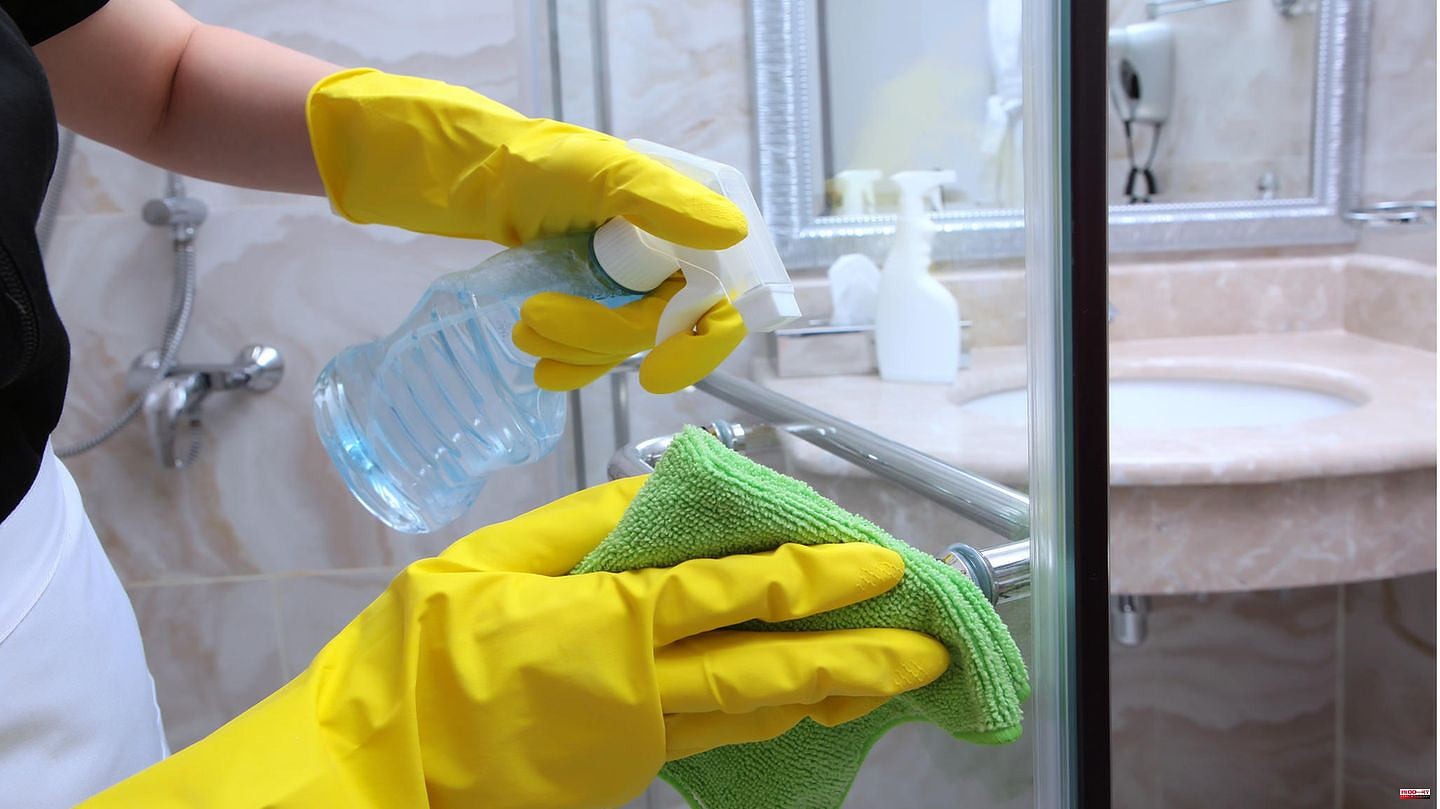The fittings, joints and tiles are particularly susceptible, but the shower curtain or the shower cubicle walls also suffer from the constant watering of a wet room. And since limescale and dirt do not stop at glass or plastic, our tricks apply to all materials that are in your bathroom (in the shower). The following cleaning tips reveal which home remedies achieve the best results without aggressive cleaning agents.
Dirty grout is best cleaned by mixing up a mixture of baking soda (or baking soda) and water. Apply the paste directly to the grout using a toothbrush and rub it into the affected areas. The mass must then be absorbed for a few minutes before you rinse it off again with warm water. But be careful: calcareous materials (e.g. marble or granite) should not be cleaned with an acidic household product. Use a mixture of soda and water in a ratio of 3:1, which must soak into the joints for 30 minutes.
Note: You can read here how to get rid of mold in the bathroom.
Calcified tiles are much easier to clean. Here, too, you can stir up a mixture of baking soda and water until you get a spreadable paste and apply it with an old sponge. Alternatively, you can also use a proven home remedy: vinegar essence. Dilute this with water and then use a cloth to apply the liquid to the tiles in a circular motion. If possible, be careful not to rub into the joints. Then rinse off the solution with warm water.
Note: For stubborn deposits, it may be worth investing in a steam cleaner. By using hot steam, dirt residues can be easily removed from the tiles. The attachments and brushes supplied can be used to clean the grout.
Hair and dirt, shampoo and shower gel residue can clog the shower drain. Instead of using an aggressive pipe cleaner, the problem can be solved in a different way - for example with a vinegar and soda mixture: First, pour five tablespoons of soda down the drain and then pour a coffee cup of vinegar over it. If the mixture starts to foam, let it sit for a few minutes before flushing the drain with hot water. Important: The resulting fumes can irritate the respiratory tract, so it is better to wear a face mask and ventilate the bathroom well.
Here, too, a household remedy has proven itself: citric acid (alternatively, vinegar also works). Dilute this with a little water before cleaning your shower fixtures with it. If the deposits are particularly stubborn, you can leave the mixture on overnight and wipe it off the next day.
Note: Read here how to descale a faucet.
Unlike a shower stall, most shower curtains have the great advantage that they can be cleaned in the washing machine. You can see whether this is really the case from the sewn-in label - it also states the maximum number of degrees that the material can withstand without problems. But even at 30 degrees, most models become very clean again.
If a shower cubicle is made of glass, it can be freed from limescale and dirt deposits with the following home remedies:
If, on the other hand, you have a shower cubicle made of plastic, you can use the following home remedies and tricks:
Extra tip: Do you already know this trick? Take half a (raw) slice of potato and rub it into the shower cubicle - this creates a kind of lotus effect, i.e. the water rolls off the shower walls and leaves fewer residues on them.
Last but not least, you can prevent limescale and dirt deposits in advance by cleaning your bathroom regularly. Also, always use a squeegee after showering to scrape the water off the walls. You can also dry the fittings with a towel if they have become damp.
This article contains so-called affiliate links. Further information are available here.












